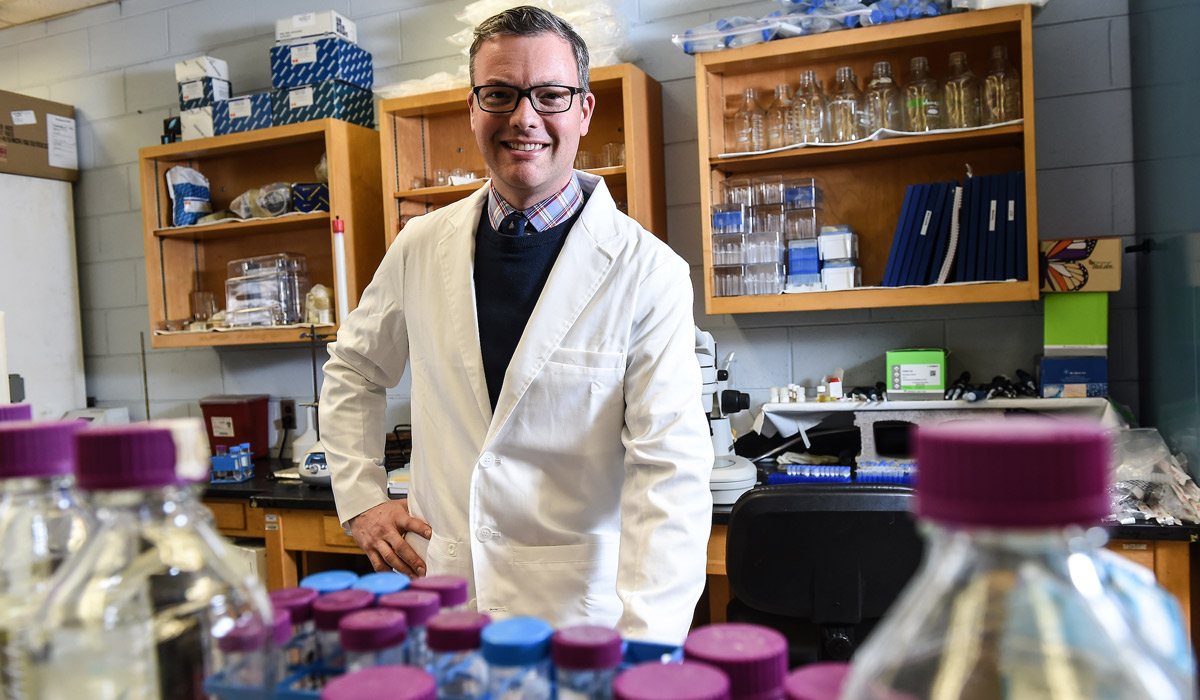

If it’s true that all Canadians are nice, then Gregory Miller exemplifies the adage. But the biochemistry professor, who has been at Catholic University for seven years, didn’t win the 2016-17 Advancement of Teaching Award just for being a good guy (although that probably didn’t hurt).
His passion for the field and his ability to make the topic interesting to both science and non-science majors – through courses such as biochemistry in science fiction or biochemistry of cooking, as well as more standard fare – have contributed to his success.
"The classes can be small here, so you can have discussions that you can’t have with 60 people in the room."
"It's the students. I like their enthusiasm,” said Miller, who studied to be a researcher at McGill University in Montreal. The Toronto native didn’t at first consider a teaching career, and continues to do a significant amount of lab work, supervising a small group of students.
Biochemistry, as Miller explains it, is the study of the chemical processes of living things, be they bacteria, viruses, or humans. As a structural biologist, he’s been studying proteins that catalyze reactions that help control how cells (including cancer cells) replicate.
Understanding these reactions, Miller said, is key to developing drugs that can stop certain proteins from catalyzing reactions that may promote diseases or infections.
“The classes can be small here, so you can have discussions that you can’t have with 60 people in the room,” said Miller. “That’s a part that I really enjoy. It’s not just standing up in front of them, throwing words at them.”
Miller has brought in visiting speakers to address his classes – “the communications that I do aren’t everything,” he jokes – including an editor from Science magazine and the communications director from National Geographic. The speaker from the White House’s Office of Science and Technology, alas, fell through.
“I guess they’re understaffed right now,” Miller said sheepishly.
Eileen McAlanon, a senior biochemistry major, started as a business major who’d been daunted by science in high school. “But then I came to Catholic and took general chemistry, and everything just started clicking,” she said. “The whole department is so open and encouraging.”
Miller especially, she said. “He always has his door open. You can come outside of class hours, and he’s happy to help you navigate the material. He’s definitely been by far one of my favorite teachers.”